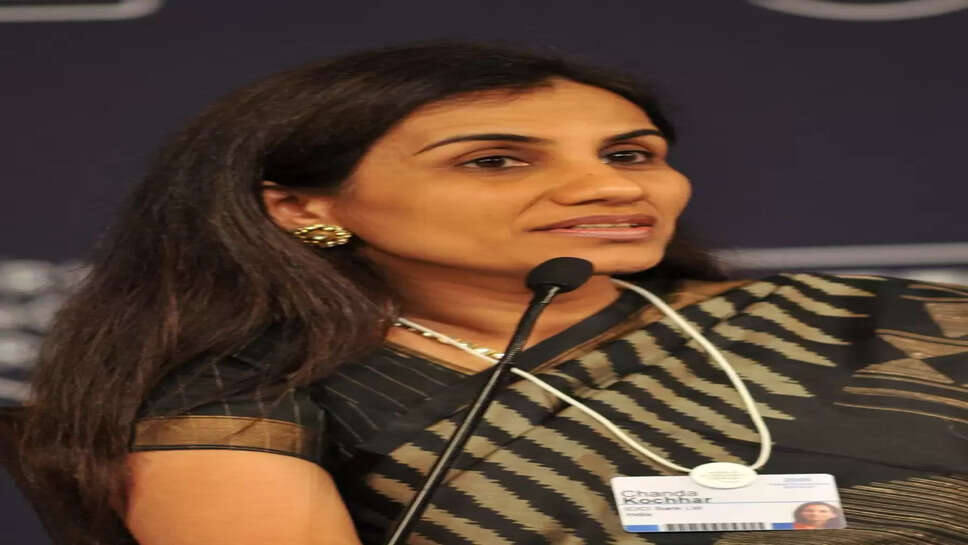Tribunal Upholds ED’s Money Laundering Charges Against Kochhars

In a major development in one of India’s most high-profile corporate scandals, the Appellate Tribunal under the Prevention of Money Laundering Act (PMLA) has upheld the Enforcement Directorate’s (ED) provisional attachment of assets belonging to former ICICI Bank CEO Chanda Kochhar and her husband, Deepak Kochhar. The order relates to a case involving alleged bribery of Rs 64 crore and the acquisition of a prime residential flat in Mumbai’s Churchgate area, which investigators claim was acquired through proceeds of crime.
The tribunal’s verdict is seen as a critical endorsement of the ED’s investigation and marks a setback for the Kochhars, who have consistently denied any wrongdoing.
The Core of the Allegation: ICICI-Videocon Loan Link
At the heart of the controversy lies a Rs 3,250-crore loan that ICICI Bank disbursed to the Videocon Group in 2012, when Chanda Kochhar was heading the private banking giant. The ED and Central Bureau of Investigation (CBI) allege that the loan was part of a quid pro quo arrangement between the bank and the Videocon Group, which later turned into a non-performing asset (NPA), causing a substantial loss to the bank.
Soon after the loan disbursal, the Videocon Group reportedly invested Rs 64 crore in NuPower Renewables Pvt Ltd, a company controlled by Deepak Kochhar. According to the ED, this financial trail constitutes a clear case of bribery, where a corporate loan approval was followed by personal financial gains for the decision-maker’s family.
The Churchgate Flat: Asset at the Center of Controversy
One of the central elements of the case is the ownership of a lavish sea-facing flat in Churchgate, Mumbai. The flat was allegedly purchased by a company indirectly controlled by the Kochhars, using funds that the ED claims were layered through complex corporate structures to mask their origin.
The ED provisionally attached the property in 2020, asserting that it was acquired using proceeds of crime derived from the illegal benefits obtained through the ICICI-Videocon transaction.
The tribunal has now ruled that the ED’s attachment is valid and backed by credible evidence, giving the agency further legal standing to continue its prosecution of the couple.
Tribunal’s Observations
In its ruling, the PMLA tribunal stated that there exists a “prima facie” link between the loan sanctioned by ICICI Bank and the funds transferred to Deepak Kochhar’s company. The tribunal remarked that such financial arrangements could not be viewed as mere coincidences and must be examined in the context of corporate governance, conflict of interest, and abuse of official position.
Furthermore, the tribunal held that the ED was right in treating the Rs 64 crore as a bribe, noting that it was transferred shortly after the loan was sanctioned. It also found sufficient reason to believe that the Churchgate flat was purchased either directly or indirectly from funds obtained through this alleged quid pro quo.
Kochhars' Defense and Legal Response
Throughout the legal proceedings, Chanda and Deepak Kochhar have vehemently denied all allegations. Their defense has focused on the fact that ICICI Bank followed standard procedures for loan approvals, which were cleared by a committee—not solely by Chanda Kochhar herself.
They also argue that investments made in NuPower were part of independent business decisions made by third parties, without any coercion or connection to ICICI’s internal workings. The Kochhars maintain that the ED is stretching the interpretation of financial transactions to suit a narrative of corruption without conclusive evidence.
Despite these arguments, the tribunal's ruling has reinforced the ED’s claim that the transactions form a chain that must be treated as proceeds of crime under the PMLA.
The Larger Implications
The ruling has far-reaching implications for corporate governance in India. It places renewed focus on transparency in large-scale banking decisions and the potential misuse of executive positions for personal benefit.
The case also sets a precedent for holding high-ranking corporate officers accountable not only for their official conduct but also for any undue benefit that accrues to their families or related businesses. With India's banking sector still recovering from a series of NPA crises, the need for such accountability has never been more critical.
Moreover, the ruling bolsters the legal validity of the ED's attachments and freezes on assets across several other corporate fraud cases currently under investigation.
Next Steps: Trial and Possible Appeals
Now that the tribunal has upheld the provisional attachment, the next steps will involve further hearings in the special PMLA court, where the ED will push for permanent confiscation of the Churchgate property and other linked assets.
It is also likely that the Kochhars will appeal the decision in higher courts. Their legal team has indicated that the fight is far from over, and they intend to challenge what they describe as "deeply flawed" findings.
Nonetheless, this tribunal decision gives the ED strong momentum in pursuing a full trial and strengthens its position against the backdrop of public and political expectations for stricter financial regulation.
A Case Symbolic of India’s Banking Reckoning
For the Indian public, the Kochhar case is emblematic of a broader reckoning in the country’s corporate and banking sectors. With high-profile names, political intrigue, and financial irregularities, the case has gripped national attention.
The ED’s continued pursuit, now validated by a judicial tribunal, indicates that regulatory agencies are stepping up their efforts to investigate and prosecute alleged corruption at the highest levels of business and banking.
Whether this leads to convictions remains to be seen, but what’s clear is that the Kochhar case will continue to shape conversations about ethics, power, and accountability in corporate India.
